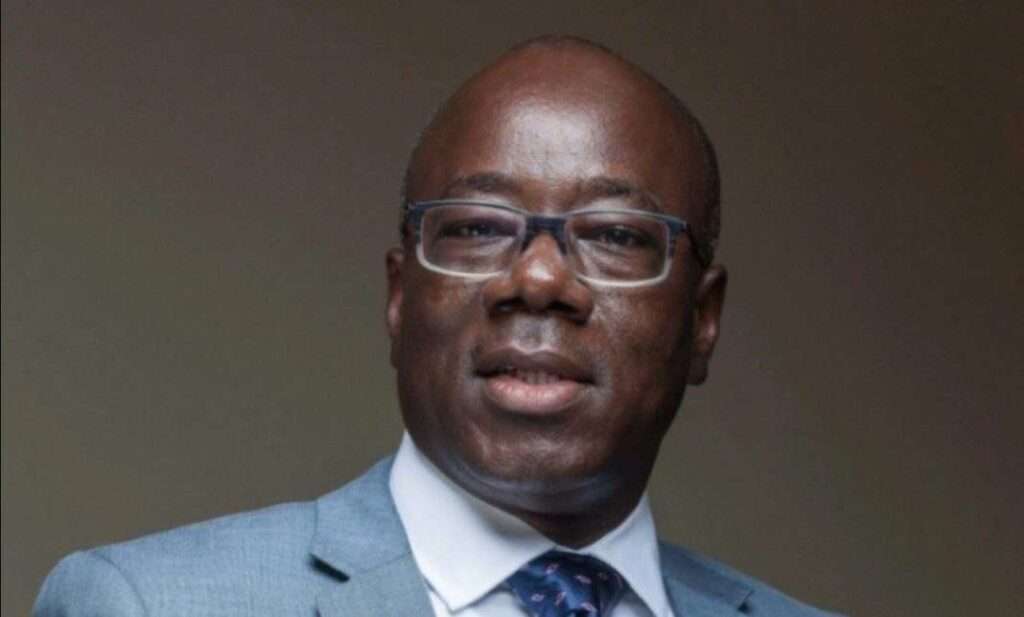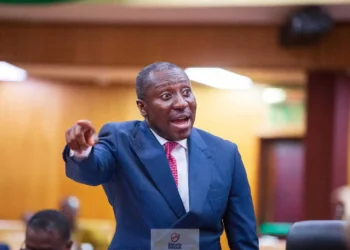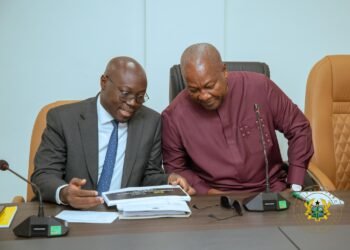The Ghanaian Parliament has been embroiled in a heated debate following the Majority Leader’s request for the Speaker of Parliament to recall the House.
This request has sparked strong opposition from the Minority Caucus, leading to accusations, counter-accusations, and legal interpretations that highlight the deep political and procedural divides in the legislative body.
The discussions have centered on parliamentary procedures, constitutional provisions, and the urgency of government business as the country approaches its general elections.
According to Hon. Habib Iddrisu, the First Deputy Majority Chief Whip and Member of Parliament (MP) for Tolon, the Majority Caucus’ request was based on procedural grounds. He emphasized;
“If you look at our memo, what we seek to do was to give the discretion to the speaker. They are not invited. We did not trigger any constitutional provisions.
If you look at our standing orders, in Orders 58 and 57, the Speaker has the discretion to be able to reconvene Parliament. But if you look at the tangent the minority is going rather than seeking to reconcile and build consensus, for us to reconvene parliament. They are rather going a tangent of confusion.’’
Hon. Habib Iddrisu First Deputy Majority Chief Whip and Member of Parliament (MP) for Tolon
Hon. Habib also dismissed the Minority’s claim that the recall violated Article 112(3) of the Constitution, asserting that the argument displayed a lack of understanding of parliamentary procedures.
He emphasized the importance of the business outlined for Parliament, particularly the appropriation of funds. He queried; “Are the NDC telling us that we should not pay any salaries to workers in December?”
Meanwhile, the Minority Caucus, led by Dr. Cassiel Ato Forson, strongly opposed the recall, citing logistical challenges and the timing of the request, just days before the elections.
They argued that the recall was unnecessary and could wait until after the elections.
However, Dr. Ato Forson referenced a previous recall on Thursday, November 17, 2024, where the Majority Caucus failed to appear in the chamber despite their request.
He stated that this undermines the credibility of their current request, stating that; How can the Speaker continue to recall the House when those making the request fail to avail themselves to attend these important government businesses?
The Minority also raised concerns about the legal basis of the recall, citing Article 112(3) of the Constitution, which they argued was not adhered to by the Majority Caucus.
A Question of Parliamentary Duty

He accused the NDC of seeking to create chaos. He lamented;
“They have that tendency of trying to disrupt Parliament, they [intend] trying to bring confusion [and] they have the tendency of disrespecting the rule of law in Ghana.”
Hon. Habib Iddrisu First Deputy Majority Chief Whip and Member of Parliament (MP) for Tolon
Hon. Habib reiterated that MPs must attend parliamentary sessions regardless of the election period. He noted;
“Is it the case that if we sit on Thursday and Friday, members are going to lose their seats for sacrificing two days? We were elected to be in the House until January 6. For that matter, when we are called upon as members of Parliament to attend to the urgency of the House, we ought to do so.”
Hon. Habib Iddrisu First Deputy Majority Chief Whip and Member of Parliament (MP) for Tolon
Moreover, Dr. Rasheed Draman, Executive Director of the Africa Center for Parliamentary Affairs, weighed in on the impasse, describing it as a symptom of deeper dysfunction within Parliament.

Dr. Draman highlighted that the ongoing legal battles between the two caucuses have immobilized the legislative body, making it difficult to resolve pressing issues.
“At the beginning of this crisis, some of us warned that if care was not taken, we [would] see one legal argument after another, and that would just completely immobilize Parliament. That is what we are seeing play out at the moment.
In normal times, I believe they would have been able to work out some compromise and come and do this business and go away.”
Dr. Rasheed Draman Executive Director of the Africa Center for Parliamentary Affairs
The debate highlights a key tension between MPs’ constitutional responsibilities and the practical demands of an election season.
While the Majority emphasized the urgency of government business, the Minority argued for logistical considerations and questioned the necessity of the recall. He advised; “Let members of Parliament be careful when they invite the court into their space.’‘
The current standoff reflects the deep polarization within Ghana’s Parliament, exacerbated by the pressures of an election year.
As both sides dig in their heels, the role of the Speaker becomes increasingly critical in navigating this impasse.
Whether Parliament can reconcile its differences and prioritize national interests over political rivalries remains to be seen.
This episode is a stark reminder of the need for dialogue, compromise, and adherence to constitutional principles in Ghana’s democratic process.
READ ALSO; Davido Reacts To Backlash Over Comment on Nigeria’s Economy























